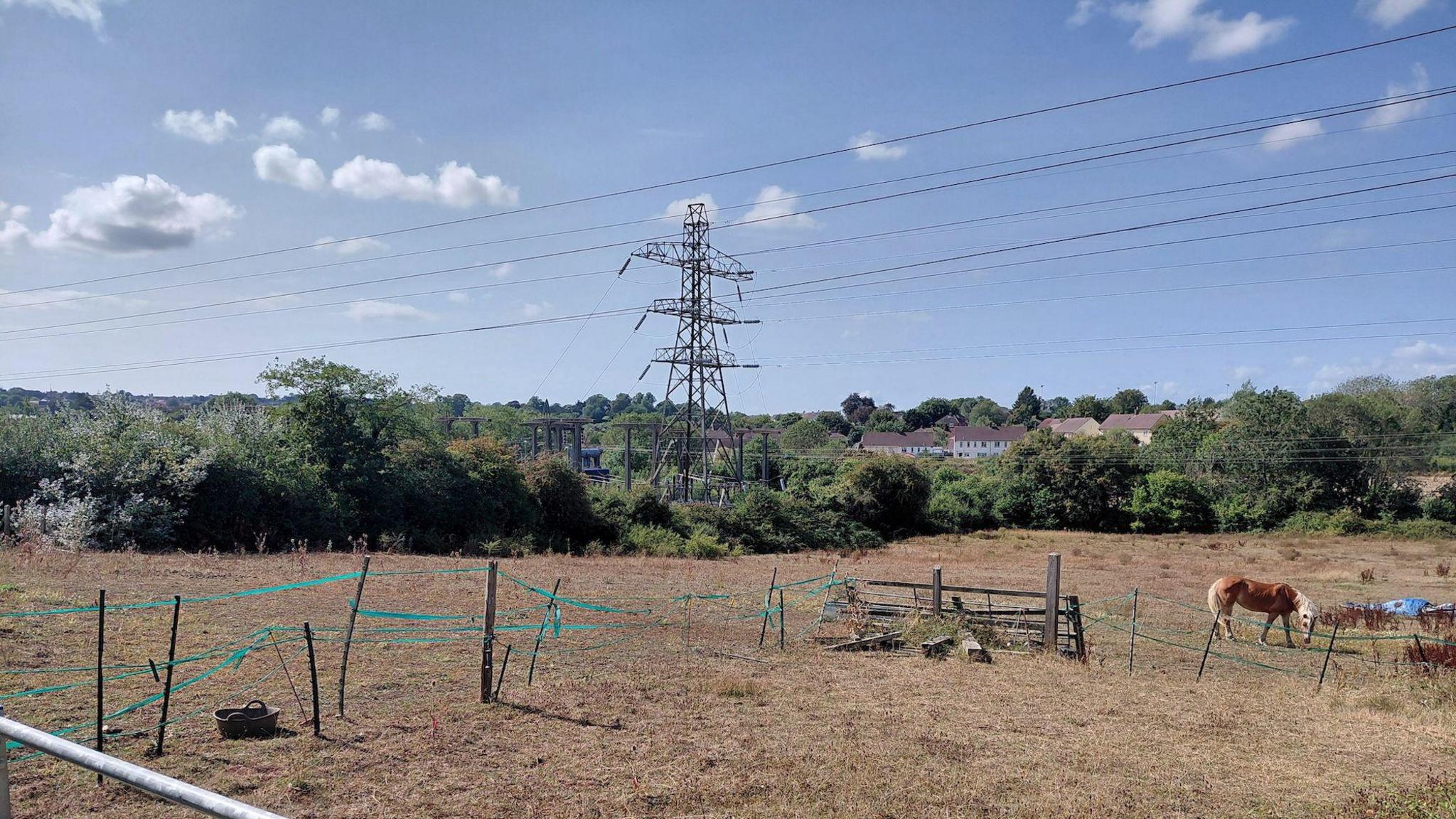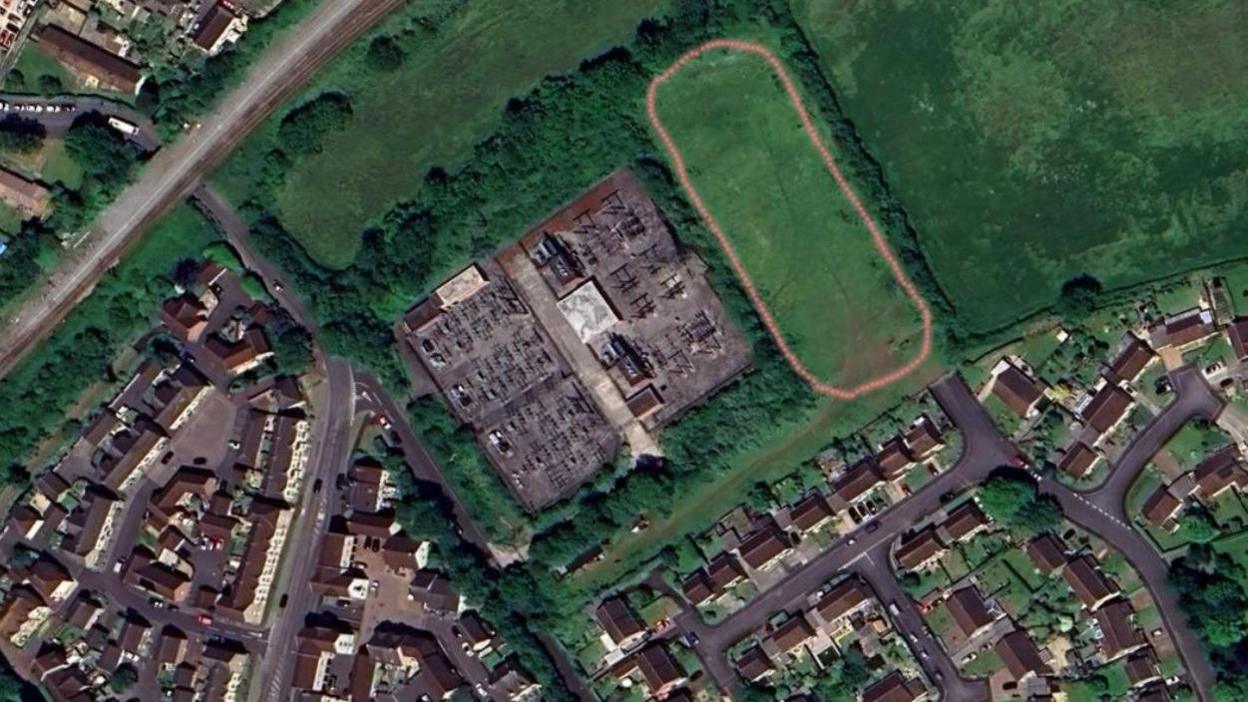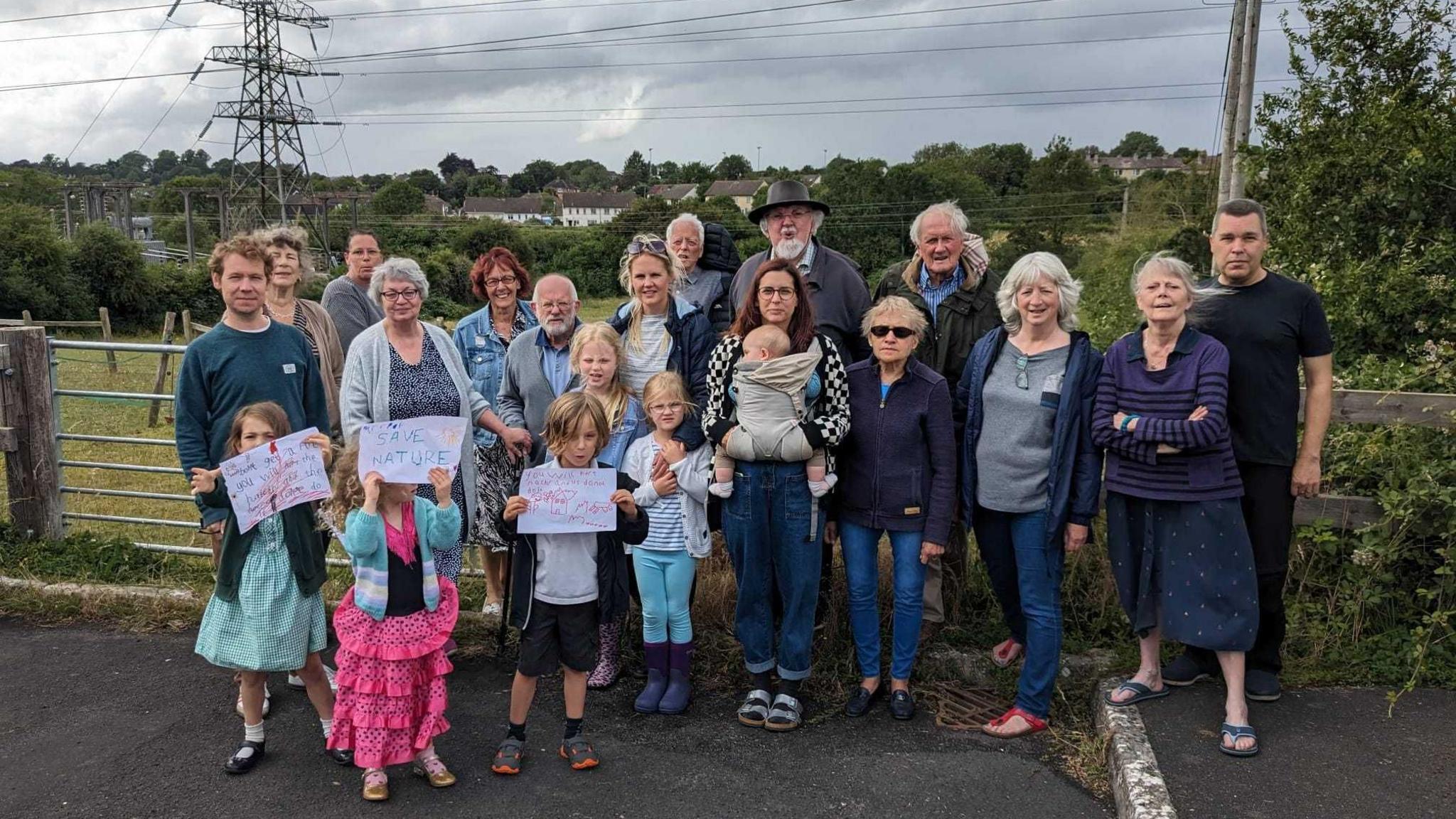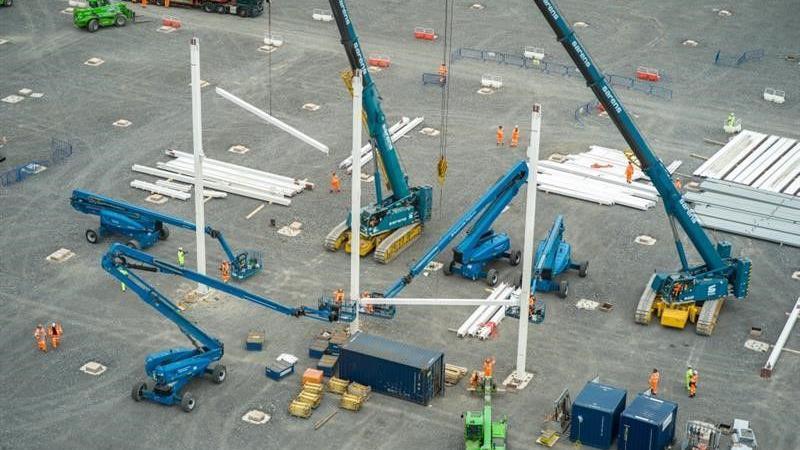Battery site refusal overturned by government

The new battery site will be built near a housing estate
- Published
A battery energy storage site is to be built in a town despite being initially rejected by local councillors.
Somerset Council had refused permission for Trina Solar UK to build the facility on land north of Styles Close, in Frome, Somerset, in February.
Residents campaigning against the proposals, which includes storage for about 30 megawatts, had claimed the site posed a "fire risk and put those living in neighbouring properties in jeopardy".
However, the government's Planning Inspectorate has since overturned the decision, ruling the risk of fire was low and residents' quality of life would not be adversely affected.
According to the Local Democracy Reporting Service (LDRS), the facility would be accessed off Styles Close, around 30 metres from the nearest house and with a direct connection to the substation.
Battery storage systems use batteries to store electricity generated at times of low demand, with the operators selling the energy back to the National Grid at peak times.
New wetlands will also be created at the northern edge of the site, with the aim of mitigating the impact of the construction.
Inspector Graham Chamberlain visited the site, and said the "notable slope" of the land away from the homes would reduce the impact of the facility.

The site for the battery energy storage system is marked in red
Responding to concerns about fire risks, Mr Chamberlain said: "The batteries would be continuously monitored and automatically shut down if there are any abnormalities."
He also said there is a fire hydrant within 90 metres of the site.
"The balance of the evidence before me demonstrates the proposal would not result in an unacceptable safety risk such that living conditions would be harmed," added Mr Chamberlain.
Devon and Somerset Fire and Rescue Service did not make a formal objection to the plans before they came before the committee for discussion.
Construction of the battery energy storage site is expected to begin in early 2026.
Get in touch
Tell us which stories we should cover in Somerset
Follow BBC Somerset on Facebook, external and X, external. Send your story ideas to us on email or via WhatsApp on 0800 313 4630.
Related topics
- Published9 February

- Published1 July
